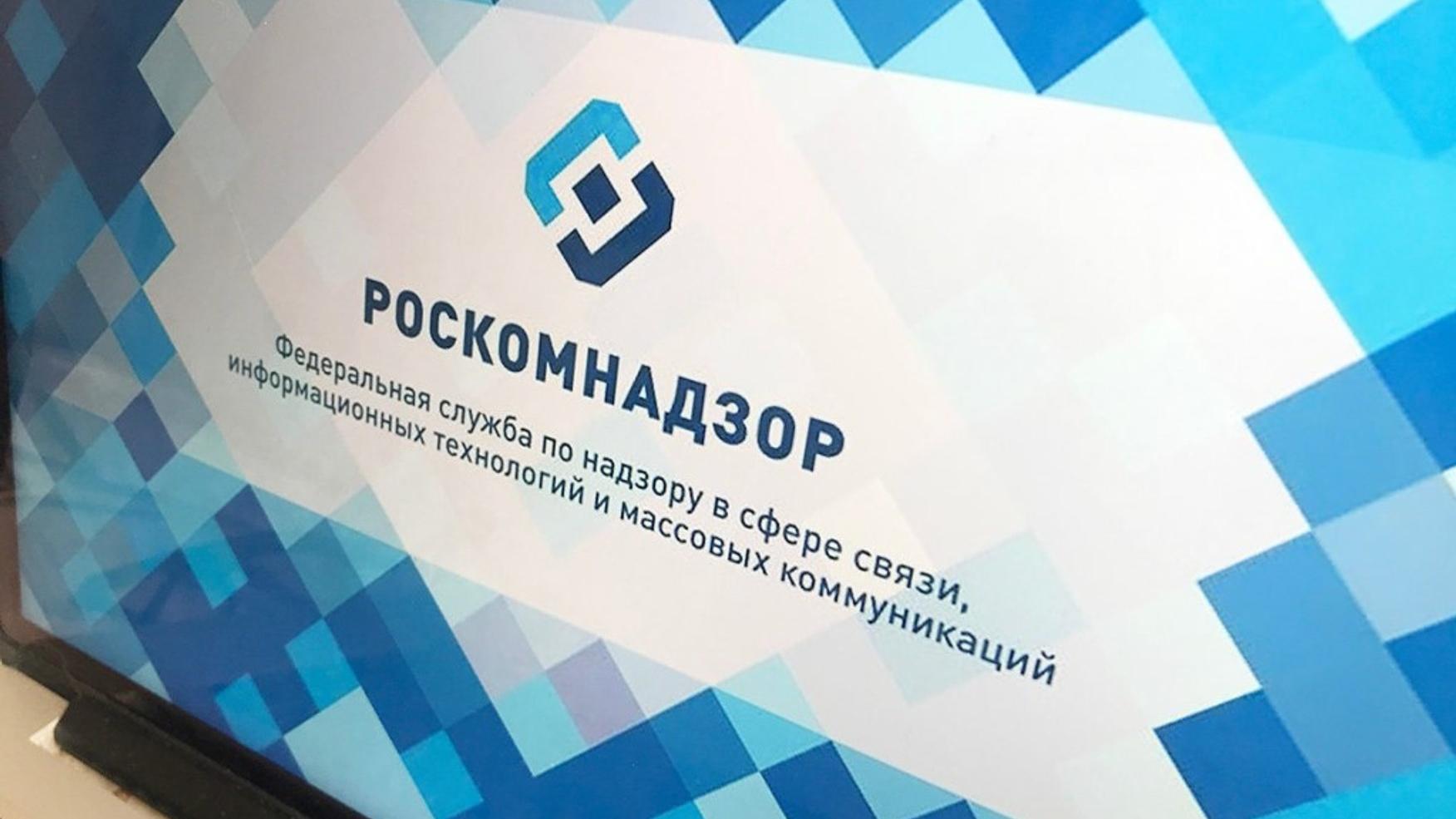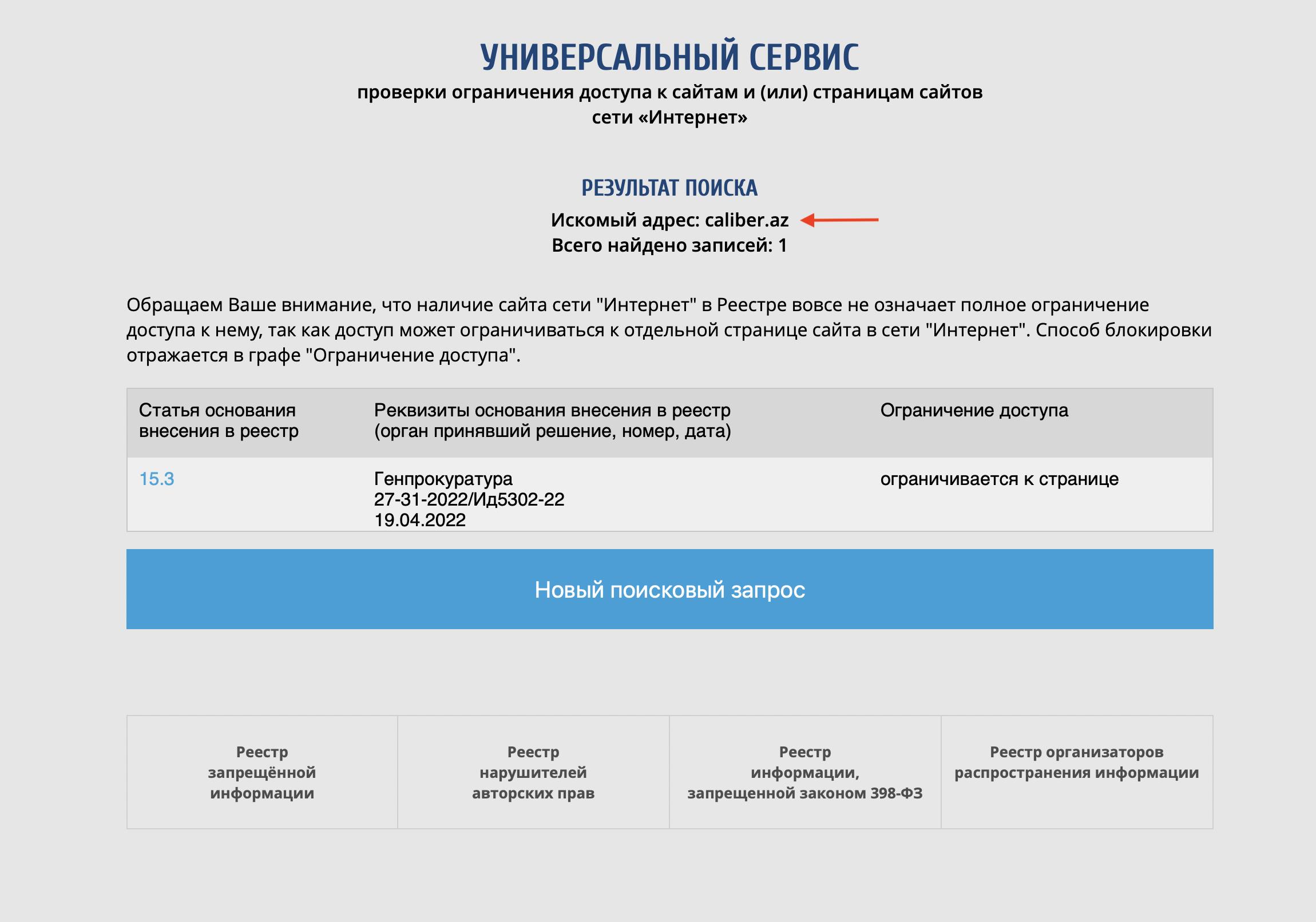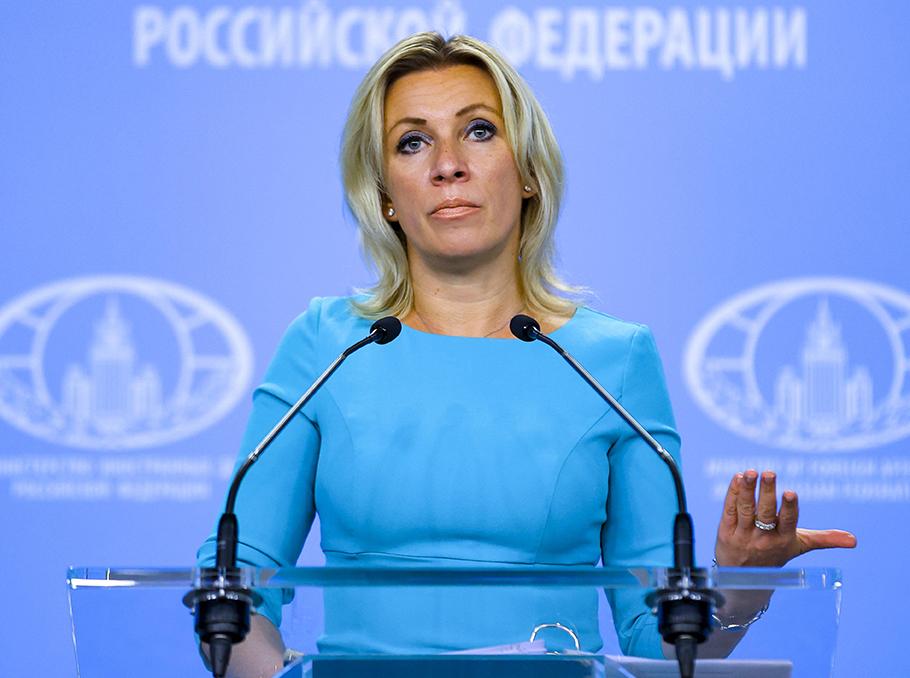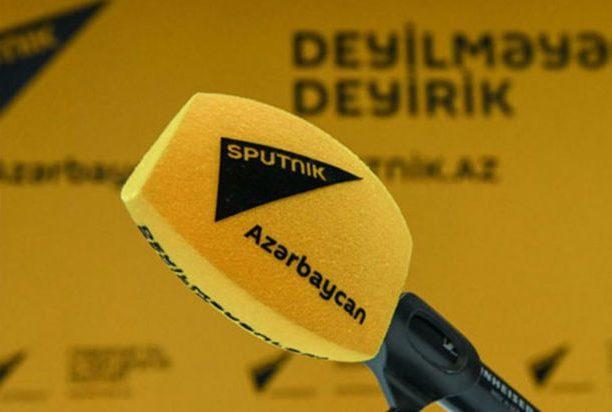Russian media watchdog blocks Caliber.Az Will Baku kick out Simonyan's "Sputnik"?
Since the start of the Russian-Ukrainian war, Internet censorship in Russia has fully come into its own rights. If earlier the media uncontrolled by Kremlin were listed as "foreign agents", which considerably limited opportunities for journalists to execute their professional duties, but total "cutting off" of websites, TV channels and radio stations disloyal to authorities began since February 24, 2022. It should be recalled that Dozhd TV station and Ekho Moskvy radio station could not escape this fate. Roskomnadzor (the Federal Service for Supervision of Communications, Information Technology and Mass Media is the executive body responsible for monitoring, controlling and censoring Russian mass media) did not stop there, and started an all-out blocking on the territory of Russia of those foreign media which allegedly published deliberately false information about the actions of Russian servicemen and calls for mass violations of public order and public security. The Azerbaijani media were included in this "black list" as well.
In March 2022, the Russian authorities decided to block Azerbaijani resources Oxu.az, Baku.ws, Haqqin.az, Minval.az and Zerkalo.az. The Press Council (PC) of Azerbaijan condemned this step of Moscow. Thus, the statement circulated by the PC noted that "Russia is not satisfied with Azerbaijani media reports about Ukraine and the unbiased stance they take in the Russian-Ukrainian war."
"Russia clearly neglects freedom of speech and expression, pluralism. This is a disregard for principles and norms, for internationally accepted human values. This is at the same time a restriction on the right of the Russian society to receive objective information, to reach the right conclusion, and to know alternative opinions.
This approach of Russia to the Azerbaijani media is a disrespect for the relationship between the two countries, the historically established traditions of friendship and cooperation between the Russian and Azerbaijani peoples, the process of exchange of information," the PC said in a statement.

Alas, the reaction of the Azerbaijani side turned out to be a drop in the ocean. The Caliber.Az website has also been blocked in Russia since April 27, according to the April 19 appeal by the Russian Federation Prosecutor General's Office to Roskomnadzor. Formally, it is not even blocked, but access to only one page of the site has been restricted. However, due to Roskomnadzor's lack of qualified IT experts and modern equipment, the site was almost completely blocked in Russia. The formal reason for the blocking was the reprinting of a report from a Ukrainian resource about the bombing by the Russian army of the Kyiv district of Troyeshchyna back in late February. Figuratively speaking, due to the lack of a microsurgeon, instead of treating even a finger that was not sick, Russia decided to invite a general surgeon and amputate the entire hand.

All we can state with certainty is that this move by Roskomnadzor was clearly biased and illegal, as the editors were not notified that our site had been blocked. Moreover, we are certain that the decision in principle to block the site was made in advance.
Of course, despite the unlawful actions of Roskomnadzor, the editorial staff of Caliber.Az is not going to violate journalist ethics and change our editorial line and sentiments in favor of Moscow censorship. We are not going to justify the Russian aggression against Ukraine. At the same time, we will not take petty revenge either - the website will continue to publish interviews with Russian experts and political analysts, as well as official summaries from the Russian side on the course of military operations in Ukraine.

What do we have in the end? Before answering this question, we would like to recall a recent statement by Russian Foreign Ministry spokesperson Maria Zakharova, who threatened that Moscow "will take tit-for-tat retaliatory measures in response to British restrictions on the Russian media." Zakharova criticized YouTube for blocking access to her press conference. Zakharova called those actions "a barbaric violation of established norms of access to content," and also stressed that it "demonstrates the unscrupulousness of American IT companies."
What can "tit-for-tat measures" mean in the case of Azerbaijan? It is a common fact that Russian websites are not blocked in our country. They were not blocked either before or during the 44-day war, although many of them were very biased and pro-Armenian. Just look at the reports of notorious and by no means independent Russian journalists from the war zone, as well as disgusting anti-Azerbaijani talk shows on Russian federal channels. Of course, the Azerbaijani public did not like it, we were indignant and resentful, but there was no question of blocking Russian sites or removing Russian TV channels from the cable TV network. But everything has its limits, and patience is one of them. Maria Zakharova's threat of "tit-for-tat measures" could not come at a better time here.
Sputnik Azerbaijan, part of the "Russia Today" news agency, headed by notorious editor-in-chief Margarita Simonyan, is doing quite well in Baku. We all remember how during the 44-day war, "Russia Today" took a clearly pro-Armenian position in its coverage of the conflict. It is quite obvious that Moscow sees “Sputnik” as a soft power, a source with which it expects to influence the host country. Therefore, it is no coincidence that the editorial policy of this website was at odds with the official position of Baku.
On a recommendation by her "boss" from the competent authorities, Simonyan has recently sent to Sputnik-Azerbaijan Vitaly A. Denisov, who until recently headed Sputnik in separatist South Ossetia (Tskhinvali region of Georgia). According to several sources, he has the rank of officer and is closely connected to the Russian Defense Ministry's GRU (Russia's Main Intelligence Directorate). After the appearance of Denisov in Baku, feeling the danger of possible closure, “Sputnik-Azerbaijan” began to work less clumsily, but it was only temporary to pull the wool over the eyes. In case of an order from the center, this resource will immediately proceed to its destructive activities, for which, in principle, it was created and why it is generously funded by the Russian state budget. It is kind of a sleeper cell of information saboteurs.

Does our country have good reason to block this and other Russian media outlets on its territory as tit-for-tat measures to Zakharova? Judging by the logic of the Russian authorities, who unreasonably block unwanted media outlets, there are. Though, we don't really understand why Caliber.Az suddenly became unwanted for Moscow.
First of all, from the very beginning of the Russian-Ukrainian war, we adhered to the policy of informational neutrality, publishing both the data of the Russian Defense Ministry on losses in the ranks of the Ukrainian army and the data of the AFU on losses, respectively, in the ranks of the Russian troops.
Secondly, our website published numerous interviews with Russian political analysts as well. Just look at the interviews with the ideologist of Eurasianism, Dugin and an intellectual weirdo, Wasserman. We are sure that not everyone in Azerbaijan liked the propaganda slogans of the respondents in those interviews, who dream about the "USSR 2.0" project. But this is journalism as it is - we may not like something, we may not share the position of Russian political analysts, but it is their position and we journalists only record it.
Thirdly, the actions of Roskomnadzor, which used its administrative resources to block the Russian public access to Caliber.Az and other Azerbaijani media outlets, do not fit in the logic of bilateral Russian-Azerbaijani relations, especially the logic of the Declaration on Allied Interaction signed in February of this year.
Russians like to say one nail drives out another. Maybe the relevant structures of Azerbaijan should take a closer look at this expression, as well as take the example of Maria Zakharova and take tit-for-tat measures in relation to Sputnik-Azerbaijan.








